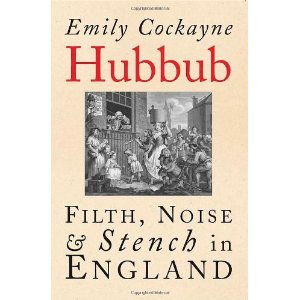
A lot of people have a real hate-on for Ryan Buell, the host of A&E’s Paranormal State and the author of this book about his experiences making the show. Basically, they think he’s a real douche. I never had much of an opinion of him either way except that I really loved the show, but now that I’ve read the book I have to tell you all, you seriously need to give the guy a break.
The problem with any reality type TV show, as everyone should know, is with the editing. Two days of footage is a lot of material to fit into 23 minutes. As Ryan himself said, it would be great if each of these shows was a feature-length movie. But they’re not, and that’s just how it goes. TV is TV. I don’t remember feeling that the show was rushed while it was still on the air, but after going back and watching almost the entire first season of which the book is based on, it looked rushed as hell. It becomes all too obvious that there’s a whole lot missing from these episodes, and what Ryan has done in this book is fill in all the blanks for us. He adds a ton of detail, so it’s an incredibly great companion for any fan of Paranormal State.
What became clear to me as I read was that what people perceive to be douchey-ness, is actually Ryan’s passion for his work and strong sense of integrity for the show. This guy is no pushover, and he’s willing to fight for what he believes in. If he thinks a mistake is being made, he wants to correct it. To be a douche would be to have an inflated ego, but Ryan absolutely does not have this, and he never comes across as the least bit arrogant or self-serving. His writing style is very honest, genuine, and pleasantly conversational. He’s not the greatest writer who ever lived, and there are still a few issues with the editing, but there’s a warmth here that gives you the sense that he’s writing directly to you, and this is difficult to achieve. He has absolutely no agenda to push, and wants only to share an important part of his life. He’s honest about his weaknesses and his doubts. He admits his mistakes. I gained a lot of respect for him, and when he drops a personal bombshell in the middle of the book I gained a lot of compassion for him too. Ryan is a good person. He’s the kind of guy you want on your side, and to his clients that must be incredibly important. They’re very lucky to have him around.
People have also accused the show of being too Catholic-leaning, and he addresses this as well. Ryan is a practicing Catholic himself, and he’s very open about this, and about his strong spiritual convictions along with his personal and professional ones. But never once does he approach anything like preaching, and he’s absolutely respectful of other people’s own belief systems. He’s the good kind of Christian, the kind that does what he believes is right free of any hate or hypocrisy. And he has good reason for this, because as you will see, he’s been on the receiving end of just this very thing himself. We also need to keep in mind that most people in America are Christians, and Ryan always strives to align the help of his team with the religious beliefs of his clients. The fact that most clients are Christian, and so the aid they provide will be Christian in nature as well is to be expected. There’s no conspiracy here, it’s just common sense.
Nor does Ryan ever try to convince anyone of the phenomenon on the show. You don’t have to be a believer in the paranormal to enjoy the book and the many insights within it. He presents the facts simply as he experienced them, and when discussing his beliefs he’s always quick to offer differing points of view. At the end of each chapter, each based on one episode of the show, there are asides with further information on topics that have been discussed, such as EVP or cryptozoology, and these are the sections that are uninfluenced by his experiences. They are only matter of fact, there so you can further appreciate and consider the book’s content. These sidebars also contain a few stories and information about the other members of his team.
So I have to end by saying that this book is not only entertaining, but very smart. The structure and the style make perfect sense and I believe that they accomplish exactly what Ryan set out to do here. He’s just sharing information, and himself. Not preaching, not pushing, not trying to prove anything. He’s just sharing his experiences the same way he would to a very good friend. That’s how you’ll feel by the end of the book, and I can’t wait to read his next one.
Other recommended reads: The Demonologist
